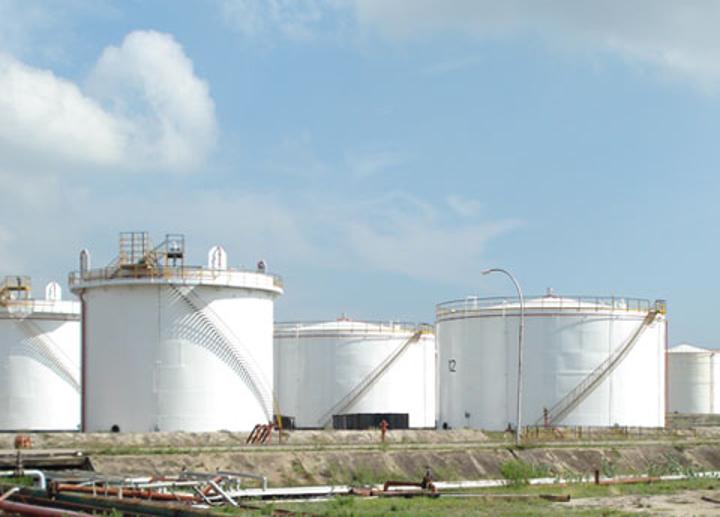Africa-Press – Tanzania. IT’S now 20 years since the Tanzania International Petroleum Reserves Limited (TIPER) changed its operations from being crude oil refinery to petroleum products storage facility.
The company went through a number of ups and downs as it embraced transformation—be it administratively or operationally.
The entity had been operating as refinery plant from the 1960’s, by then known as Tanzanian Italian Petroleum Refining (TIPER) Company Limited. It was owned under shareholding between the government and Italian petroleum giants ENI and was commissioned in 1966 as an oil refinery.
The refinery and its associated tankage were located at the Kigamboni peninsular between the Southern Creek of Kurasini and the deep sea Indian Ocean directly opposite the Dar-es Salaam harbour.
The cost of construction of and the subsequent value of the refinery at that time was 100m/-. The government purchased 50 per cent of the shares while the other 50 per cent were retained by ENI through its holding company Agip. The refinery’s capacity was only 600,000 tons per annum. However, the refining capacity was increased to 750,000 tons per annum in a bid to increase output to serve the fuel requirements for Zambia.
In 1999, Agippetrol International (BV) – “Agip”; sold its assets in TIPER as well as the 50 per cent shareholding of the company to Oryx Energies SA.
The remaining 50 per cent shares are owned by the government. The shares are held by the Treasury Registrar on behalf of the government.
Following the liberalization of the downstream petroleum subsector in Tanzania in the year 2000, the company found it uneconomical to operate as a refinery. In mid-2000, the company changed its main objective from refining to petroleum product storage.
The refinery was decommissioned, scrapped and the plant was then converted into a refined petroleum storage terminal. Though the company’s name changed from the Tanzanian Italian Petroleum Refining Co. Limited to Tanzania International Petroleum Reserves Limited, the acronym remained the same (TIPER).
For the past 20 years while operating as a storage facility, TIPER has recorded great strides. During this period, the company has increased its storage capacity by 81 per cent, a move which Company’s Deputy Managing Director Martin Mosha describes as efforts to facilitate the country’s oil marketing companies to store huge reserves.
TIPPER currently has a capacity to reserve nearly 254 million litres, up from 140 million litres capacity recorded 10 years ago. “The current capacity is enough to reserve fuel for all oil marketing companies countrywide, thus guaranteeing supply of the commodity in the local market, thus addressing high demand and high prices,” Mr Mosha states.
Adding: “additional storage capacity of 60,000,000 litres is expected to come in 2022/23.” Mr Mosha says that with the huge reserve, oil marketing companies can import big consignments that would last for a longer period than nowadays, something which will help in controlling shortages.
“If fuel importers could utilize it properly, this reserve could also avoid paying demurrage at the port,” he assures.
Apart from TIPER’s huge reserve, it’s infrastructure for pumping fuel from its tanks have been connected to all depots of oil marketing companies, thus giving it an advantage of pumping oil to the importers’ depots.
“Here in Dar es Salaam where tanks are available we have installed 6 modern fuel flow metres for ensuring accuracy on received and supplied fuel,” he explains. It is now the largest depot in Tanzania that can receive and store all product discharged from a single large vessel that deliver fuel to the nation through the national Bulk Procurement System.
According to Mr Mosha, over the past 10 years between 2010 and 2021, TIPER has been operating profitably.
Total revenue generated over that period is 62.9bn/-, with total dividend paid to the government being 28.2bn/-.
The company has continually re-invested its profits in continuous maintenance of its tanks and associated infrastructure in an endeavor of continuous improvement and capacity optimization.
Highlighting some of challenges facing the company, he says the increased trend of oil marketing companies to set up their own storage facilities has retarded business of the storage facility.
Mr Mosha attributes it to concern from those companies that pumping fuel from TIPPER to their depots was double handling which added more costs.
As a way forward, TIPPER is now considering constructing an area for tankers to load fuel.
“We have already asked the board of directors to endorse the plan,” Mr Mosha said.
The company also has plans to increase its capacity by adding more tankage to facilitate the envisaged operations of a special bonded warehouse and eventual Strategic Petroleum Reserve (SPR).
Activation of phase two of the Truck Loading Facility will attract more volumes and lifting the operating standards in all fronts especially the Health, Safety, Security, Environment and Quality (HSSEQ) and attain the ISO certification.
The company further looks forward to acquiring validation in practical terms and become the hub of petroleum supply chain for East and Southern Africa.
For More News And Analysis About Tanzania Follow Africa-Press







